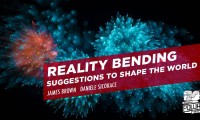Robert Cialdini was a professor of psychology at Arizona State University until late 2009, when I believe he retired. So if you have not heard of this guy, I think your missing out on some valuable information. After many years of research and study he has come up with 6 rules of influence. 6 points that can be put to good use to improve your chances of getting the result your looking for.
Cialdini has a very popular book available that I have linked to on the resources page called “Influence: The Psychology of Persuasion”. I have not read the book myself, but its on my list and I am sure its a worth while read. So now your thinking, you have not read the book, so what on earth are you posting about. Well, I have seen a recording of a seminar he gave in the US on his 6 rules, and I thought this information would be good to share, spark some interest, and encourage you to try them out, and perhaps take up some further reading. I am sure once you read the 6 points, they will make sense and seem obvious (like most things do once we understand) and you will be able to recall situations you have been in the past where this information may be have used, or helpful to you.
So without further a do, the 6 points.
1 – Reciprocation
This is most likely the most useful rule. Its the rule of reciprocation, the fact that its human nature to feel the need to return a favour. Its this feeling, the feeling of obligation that puts us in such a powerful situation. If I was to ask you to lend me some money for a drink, of course I would be grateful. Should you ask in the future for the same of course I would do the same, I would feel obliged to return that favour. Reciprocation does not always need to be a exact / specification exchange, the point to focus on is the obligation. So seems obvious, but many of us just throw away this powerful weapon of obligation. How often have you done something for someone, and then when they ask say thank you, you destroy the situation with “No problem, it was nothing”. Kiss it good bye, you have lost your vantage point. We have are in an excellent position when someone thanks us for something, its a point of leverage. So next time your in this situation you can simply same the following “No problem, I know you would do the same for me”. In that simple response you ensured the obligation to return the deed is cemented. The great thing about obligation, there is no real time limit on when you decide to cash it in.
Another point of leverage is when someone says no. No one likes to hear it, and no one likes to say it either. We can use the rule of reciprocation in this situation also, in the form of concessions. An example is the following. You ask your boss if you can have funding to go to an expensive conference, and you are denied. You then retreat with your tail between your legs. A few days later you ask again, but this time for a cheaper conference. This is seen as a new request, and once again, no, access denied. We can be more successful if we look for reciprocation. After someone says no, they are vulnerable, and would ideally like to please. This is the time to strike and ask again for something more reasonable. There is a high probability of this being accepted, due to reciprocation. So next time you want to attend a conference, aim higher, and when denied ask for the conference you wanted to go to. You stand a higher chance, and if they said yes anyway to the more expensive conference you are sure they would not have agreed to, then even better.
2 – Scarcity
The next rule utilises the desire for something there isn’t a lot of, when something is scarce. The approach here is to communicate in a way as to highlight what someone will lose as a result of not going in the direction you want them to. In order to get even more acceptance exclusivity is something else that can be added to the scarce mix for additional success. An example for this can be easily demonstrated when we talk about information. If we are to tell someone that we have exclusive information, about a limited one time offer, people are hooked. The thought that not everyone is privy to this information, and the fact that this something will soon be unavailable, makes the proposal even more inviting. Give some thought as to how you can use this principle.
3 – Authority
If an expert says something, then it must be true. This is something we all find ourselves falling victim to, well I gave him my information because he was an expert, an authoritative figure. So to establish ourselves as a point of authority, we need to ensure we establish ourselves early on as someone who is knowledgeable, and trustworthy before trying to influence someone. When doing this it is essential to build rapport, and also to bring to the table negative information as well as the positive, this builds the sense of trustworthiness, as well as being knowledgeable on something, and as a result being an authoritative figure.
4 – Consistency
We are more willing to say yes to a request that is consistent with something they have already said or done. If we look for people to make a commitment to something, there stands a good chance they will be consistent with what they have said or written. Research shows if we can get someone to commit to doing something verbally, or ideally written down they are more likely to do it. It is this fact, that they have already said and confirmed they will do something that gives us the consistency.
5 – Consensus
If others are doing it, we are most likely to do it, its the power of the crowd. If there is a peception that everyone else thinks something is a good idea, or an individual is knowledgeable / authoritative, then we tend to fall in line and accept often without question that it must be true. If a friend was to introduce someone to you, and tell you that they are brain surgeon, you must likely will believe so. This is possibly a difficult example, as challenging the fact would be difficult.
6 – Liking
People prefer to say yes, to those they know and like. We can increase our chances of someone liking us by identifying similarities, complimenting people, and by cooperative efforts. We like people who are like us, we like people who like us and say so, and we like people we can work with in a cooperative way. This is another reminder of why rapport is so important.
I hope this information will be useful and some what interesting, as you can see some topics where touched on more than others. I will say that these 6 rules work globally, however research has shown that some are more significant in some countries more than others.
Reciprocation scores high in the US and UK, Authority scores high in ASIA, Consistency is very important in Germany, and Liking is very important in Spain.

















[…] This post was mentioned on Twitter by Dale Pearson. Dale Pearson said: Cialdini's 6 Rules of Influence.. Pick your weapon wisely – http://bit.ly/dxuG0I […]
Social comments and analytics for this post…
This post was mentioned on Twitter by headhacking: Cialdini’s 6 Rules of Influence.. Pick your weapon wisely – http://bit.ly/dxuG0I…
[…] or click that link? Influence that’s what. You may remember some time ago I wrote about the 6 rules of influence, well this approach will help you in your phishing attack. Perhaps they will click your link as […]
[…] of psychology at Arizona State University until late 2009, when I believe he retired.See on http://www.subliminalhacking.net Rate this:Share this:FacebookTwitterLike this:LikeBe the first to like this. Comments RSS […]